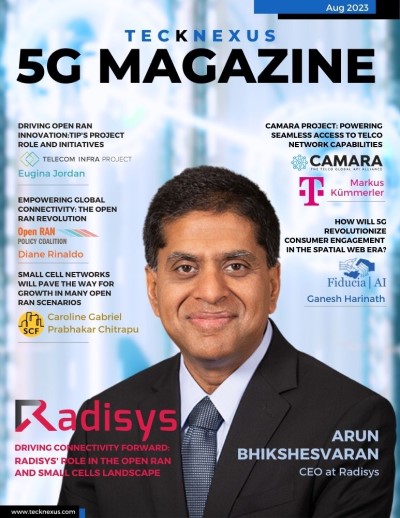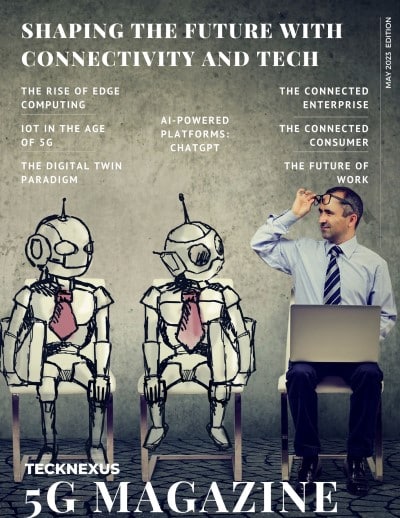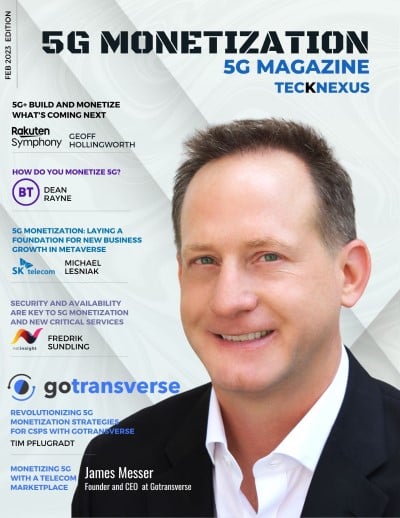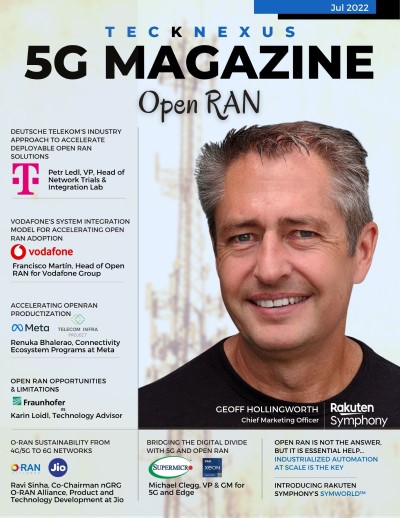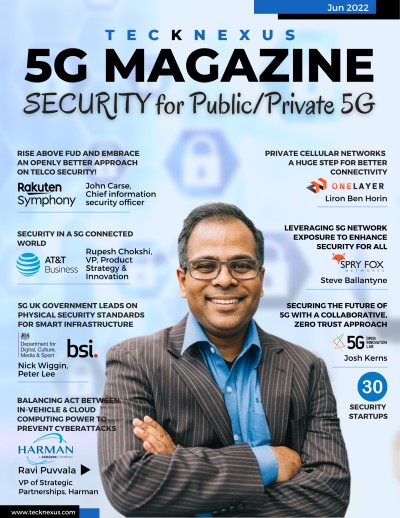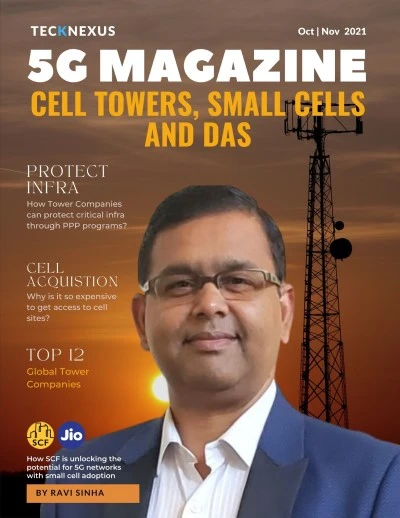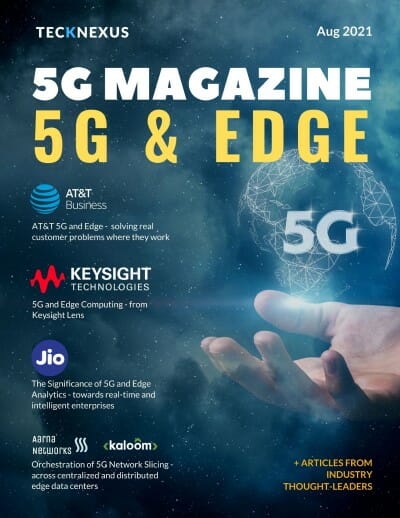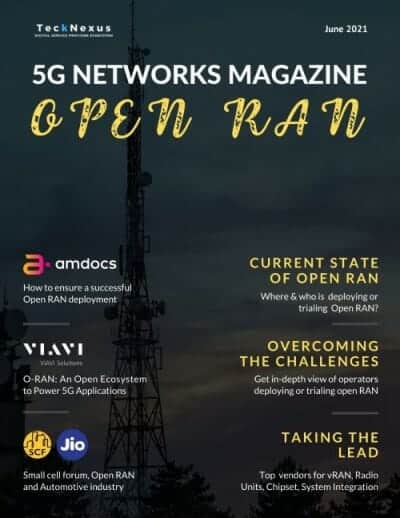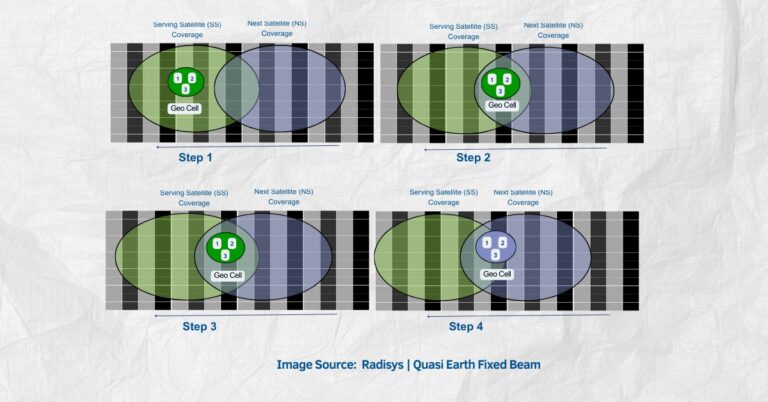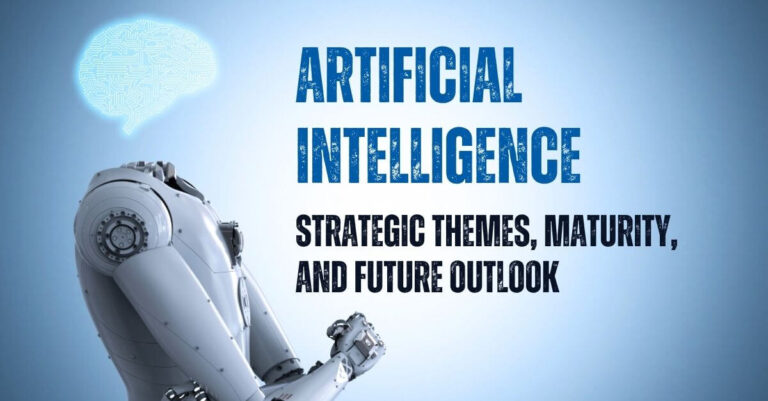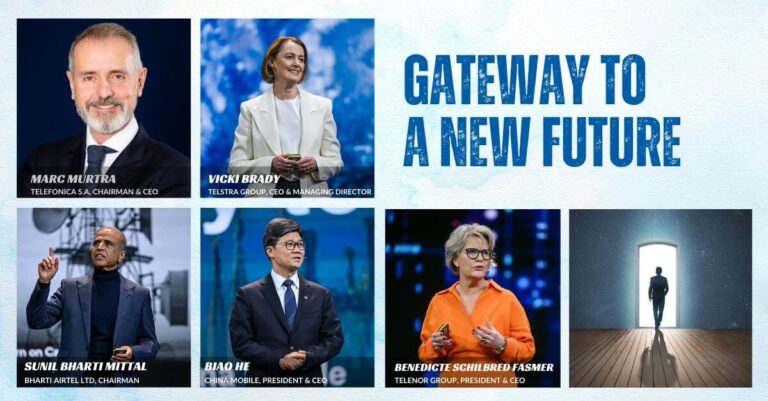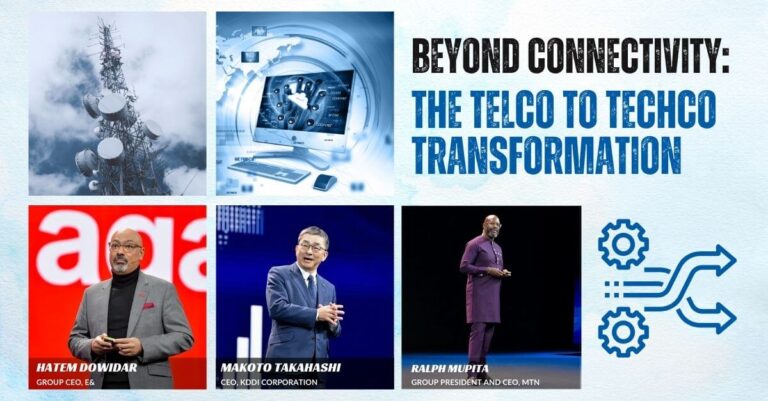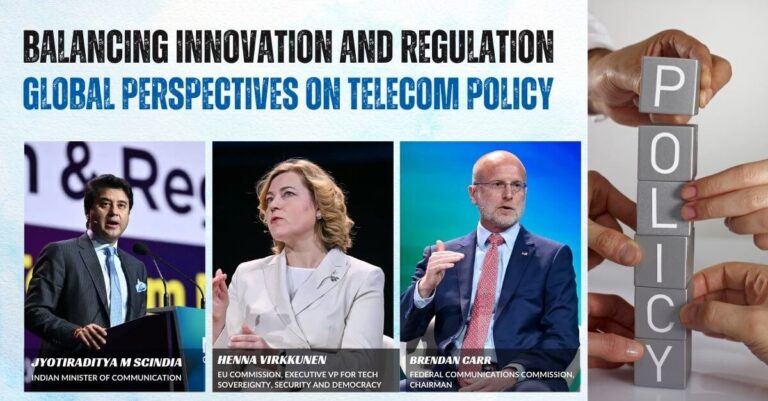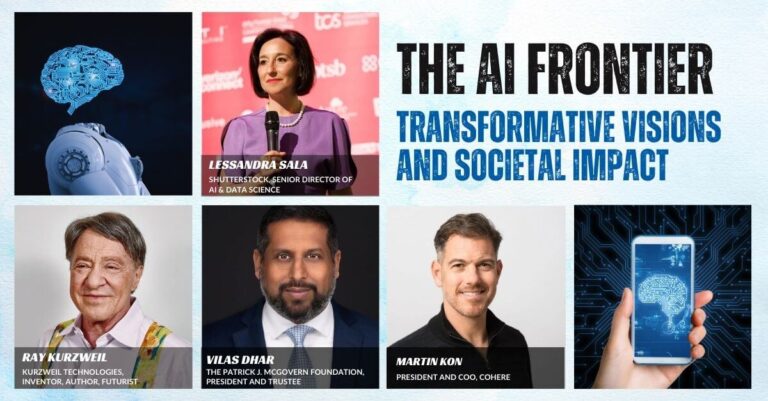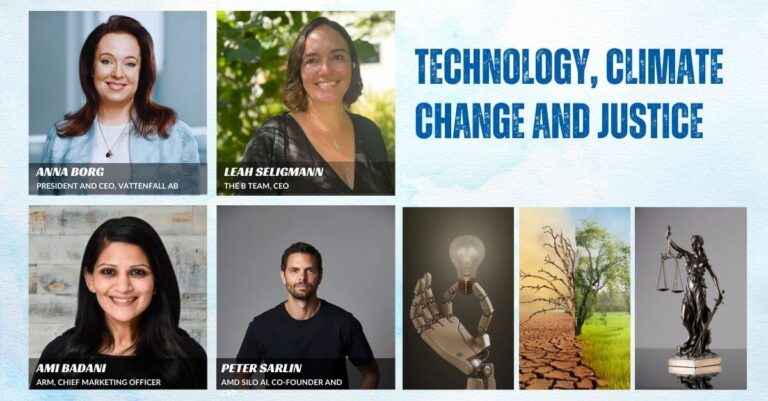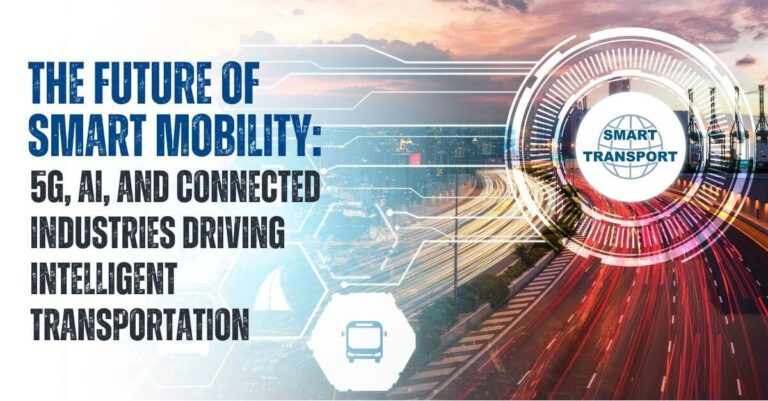Magazines and Articles
Reach Telecom and Enterprise Buyers with Our Magazine
Your story deserves the right audience. Showcase your solutions to CIOs, CTOs, and enterprise decision-makers through our sponsored content opportunities.
This article breaks down the core distinctions between Quasi-Earth fixed beams and Earth-moving beams in LEO/MEO satellite networks. It explores their application in both transparent and regenerative NTN architectures, the dynamic association of beams to ground cells, TAC list management, and the implications for UE mobility and network signaling.
In AI in Telecom: Strategic Themes, Maturity, and the Road Ahead, we explore how AI has shifted from buzzword to backbone for global telecom leaders. From AI-native networks and edge inferencing, to domain-specific LLMs and behavioral cybersecurity, this article maps out the strategic pillars, real-world use cases, and monetization models driving the AI-powered telecom era. Featuring CxO insights from Telefónica, KDDI, MTN, Telstra, and Orange, it captures the voice of a sector transforming infrastructure into intelligence.
In The Gateway to a New Future, top global telecom leaders—Marc Murtra (Telefónica), Vicki Brady (Telstra), Sunil Bharti Mittal (Airtel), Biao He (China Mobile), and Benedicte Schilbred Fasmer (Telenor)—share bold visions for reshaping the industry. From digital sovereignty and regulatory reform in Europe, to AI-powered smart cities in China and fintech platforms in Africa, these executives reveal how telecom is evolving into a driving force of global innovation, inclusion, and collaboration. The telco of tomorrow is not just a network—it’s a platform for economic and societal transformation.
In Beyond Connectivity: The Telco to Techco Transformation, leaders from e&, KDDI, and MTN reveal how telecoms are evolving into technology-first, platform-driven companies. These digital pioneers are integrating AI, 5G, cloud, smart infrastructure, and fintech to unlock massive value—from AI-powered smart cities in Japan, to inclusive fintech platforms in Africa, and cloud-first enterprise solutions in the Middle East. This piece explores how telcos are reshaping their role in the digital economy—building intelligent, scalable, and people-first tech ecosystems.
In Balancing Innovation and Regulation: Global Perspectives on Telecom Policy, top leaders including Jyotiraditya Scindia (India), Henna Virkkunen (European Commission), and Brendan Carr (U.S. FCC) explore how governments are aligning policy with innovation to future-proof their digital infrastructure. From India’s record-breaking 5G rollout and 6G ambitions, to Europe’s push for AI sovereignty and U.S. leadership in open-market connectivity, this piece outlines how nations can foster growth, security, and inclusion in a hyperconnected world.
In Driving Europe’s Digital Future, telecom leaders Margherita Della Valle (Vodafone), Christel Heydemann (Orange), and Tim Höttges (Deutsche Telekom) deliver a unified message: Europe must reform telecom regulation, invest in AI and infrastructure, and scale operations to remain globally competitive. From lagging 5G rollout to emerging AI-at-the-edge opportunities, they urge policymakers to embrace consolidation, cut red tape, and drive fair investment frameworks. Europe’s path to digital sovereignty hinges on bold leadership, collaborative policy, and future-ready infrastructure.
In The AI Frontier: Transformative Visions and Societal Impact, global AI leaders explore the next phase of artificial intelligence—from Ray Kurzweil’s prediction of AGI by 2029 and bio-integrated computing, to Alessandra Sala’s call for inclusive, ethical model design, and Vilas Dhar’s vision of AI as a tool for systemic human good. Martin Kon of Cohere urges businesses to go beyond the hype and ground AI in real enterprise value. Together, these voices chart a path for AI that centers values, equity, and impact—not just innovation.
In Technology Game Changers, leaders from Agility Robotics, Lenovo, Databricks, Mistral AI, and Maven Clinic showcase how AI and robotics are moving from novelty to necessity. From Peggy Johnson’s Digit transforming warehouse labor, to Lenovo’s hybrid AI ecosystem, Databricks’ frictionless AI UIs, Mistral’s sovereignty-focused open-source models, and Maven’s virtual women’s health platform, this article explores the intelligent, personalized, and responsible future of tech. The next frontier of innovation isn’t just smart—it’s human-centered.
Global Shifts explores how leaders like Keyu Jin and Gregory Allen are analyzing the breakdown of old globalization models and the rise of new strategic paradigms. Jin outlines the emergence of regional economic blocs, China’s shift toward technology self-reliance, and the decentralization of capital. Allen frames AI as a strategic battleground, discussing export controls, the rise of DeepSeek, and the risks of decoupling. The piece offers a critical look at how economic power and innovation are evolving in an era defined by urgency, sovereignty, and competition.
In Technology, Climate Change and Justice, top leaders from Arm, The B Team, Vattenfall, and Silo AI outline how technology can both fuel and fix the climate crisis. From Leah Seligmann’s values-driven climate leadership to Anna Borg’s clean-energy grids and Peter Sarlin’s push for efficient, open-source AI, this piece highlights how innovation must align with inclusion, sustainability, and resilience. The message is clear: solving climate change isn’t just about new tech—it’s about how we deploy it, who benefits, and whether it truly serves a livable future.
In Innovation In Action, executives from Time, Sierra, and Axios share how they’re redefining business, media, and journalism with AI. Time is unlocking over a century of content for fair AI use, while Sierra’s “agentic AI” elevates the customer experience across industries. Axios emphasizes human-first reporting with AI support. Across the board, these leaders show how strategic adaptation can embrace AI without compromising trust, transparency, or editorial integrity.
The future of manufacturing is intelligent, autonomous, and sustainable. Powered by private 5G networks, AI, and digital twins, smart factories are revolutionizing how goods are produced and maintained. From predictive maintenance to immersive virtual twins and AI-optimized energy systems, smart manufacturing is unlocking new levels of efficiency and innovation across industries—from ports and shipyards to agriculture and healthcare.
Smart mobility is reshaping how the world moves, powered by 5G, AI, and edge computing. From autonomous vehicles and real-time logistics to AI-driven drones and connected public transport, intelligent transportation systems are redefining urban mobility, logistics, and industrial automation. As global investment and collaboration grow, the transportation industry is transforming into a $11.1 trillion smart ecosystem focused on sustainability, efficiency, and connectivity.
FinTech, private 5G networks, and AI are converging to reshape digital finance across industries. From embedded payments and super apps to AI-driven credit scoring and secure M2M transactions, this $2 trillion opportunity is powered by mobile technology, cloud infrastructure, and regulatory evolution. Leaders must act fast to unlock new revenue, scale inclusion, and secure digital ecosystems.
The future of sports and entertainment is fan-first, immersive, and data-driven. Powered by D2C models, 5G networks, AI content creation, and super apps, industry leaders are reimagining fan experiences—from Bundesliga’s mobile strategy to Web2.5’s tokenized communities. The shift is not just technical but cultural, prioritizing personalization, monetization, and real-time interaction across every touchpoint.
Satellite-mobile convergence is rapidly shifting from niche to mainstream, enabling global mobile coverage through Non-Terrestrial Networks (NTN). With direct-to-device (D2D) standards now supported by 3GPP Releases 17–19, traditional mobile phones can connect directly to satellites. This development has unlocked use cases in emergency response, smart agriculture, logistics, and IoT—paving the way for a future where 6G, edge AI, and multi-orbit architectures redefine connectivity. Learn how telecoms, enterprises, and regulators are navigating the path to a fully connected planet.
The private network market is expanding rapidly as enterprises scale their private 5G/LTE deployments across industries like utilities, manufacturing, and oil & gas. Companies that began with single-site proofs of concept are now rolling out private networks on a larger scale, tackling challenges in security, IT integration, and SIM provisioning. Specialized vendors like OneLayer play a crucial role in streamlining deployment, enhancing security, and enabling seamless IT and OT ecosystem integration. Learn how private networks are evolving and the key factors driving adoption.
Learn about regenerative non-terrestrial networks (NTNs) and their role in advancing global connectivity. This article explores the differences between partial and fully regenerative architectures, key handover mechanisms, and the challenges and opportunities associated with satellite-based mobile connectivity.
Explore NTT DATA’s role in advancing private networks through enterprise 5G solutions, Edge AI, and Network-as-a-Service (NaaS). Learn how these technologies address digital transformation, operational efficiency, and security while offering businesses flexible, scalable, and reliable solutions tailored to their needs.
Discover how robust synchronization ensures 5G networks can handle critical use cases like emergency services and Industry 4.0. Learn about Precision TimeNet and ITU’s move to standardize network-based synchronization, reducing reliance on vulnerable GNSS systems and securing network resilience for a connected future.
TeckNexus is proud to announce the winners of the 2024 Private Networks Awards, celebrating outstanding achievements in private 5G, LTE, and CBRS innovations. This prestigious program honors companies, solutions, and collaborations that have transformed connectivity and redefined industry standards in sectors such as manufacturing, healthcare, smart cities, and public safety. The winners showcase how advanced private networks and strategic partnerships address complex challenges, drive innovation, and promote sustainable growth.
Award Category: Excellence in Private 5G/LTE Networks
Winner: Nokia
Nokia has been recognized with the TeckNexus 2024 Award for “Excellence in Private 5G/LTE Networks” for its transformative solutions that drive industrial digital transformation. Utilizing advanced technologies such as Nokia Digital Automation Cloud (DAC) and Modular Private Wireless (MPW), Nokia delivers secure, scalable, and high-performance connectivity tailored for Industry 4.0 applications. By addressing complex operational challenges through reliable, low-latency connectivity, AI-driven automation, and robust data security, Nokia empowers enterprises to optimize efficiency, enhance automation, and foster sustainability. With deployments across over 795+ enterprise customers and 1,500 mission-critical networks, Nokia’s innovative private wireless solutions are setting new standards for connectivity, operational excellence, and industrial growth worldwide.
Award Category: Excellence in Neutral Host Networks
Winner: Celona
Partners: Del Conca and T-Mobile
Celona’s innovative 5G LAN and Neutral Host solutions have been recognized with the TeckNexus 2024 Award for “Excellence in Neutral Host Networks” for transforming connectivity and operational efficiency at Del Conca USA, a leading manufacturer of fine Italian porcelain tiles. By addressing the limitations of legacy Wi-Fi systems, Celona deployed a robust, scalable private wireless network that significantly enhanced coverage, mobility, and operational resilience across Del Conca’s 30-acre facility. Leveraging the Citizen’s Broadband Radio Service (CBRS) spectrum, Celona’s solution delivered reliable, interference-resistant connectivity, optimizing real-time data communication for Automated Guided Vehicles (AGVs) and forklifts, thereby minimizing production delays and improving material handling efficiency. Additionally, Celona’s Neutral Host capabilities seamlessly integrated public cellular networks through a partnership with T-Mobile, providing uninterrupted indoor and outdoor connectivity for employees. This deployment not only showcased the transformative impact of Celona’s private 5G and Neutral Host solutions on manufacturing automation but also set a new benchmark for scalable, secure, and collaborative network integration across industrial environments.
Award Category: Excellence in Private Network Startups
Winner: GXC
GXC’s ONYX Platform, powered by Cellular Mesh technology, delivers scalable, seamless, and secure communication across industries. Recognized with the TeckNexus 2024 Award for “Excellence in Private Network Startups,” GXC’s proprietary Cellular Mesh technology and its ONYX Platform have established it as a frontrunner in delivering reliable, high-performance connectivity solutions tailored to meet the complex needs of enterprises.








